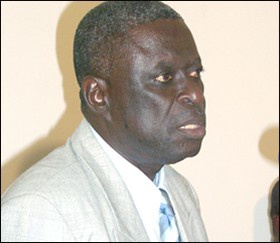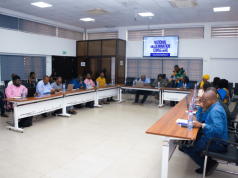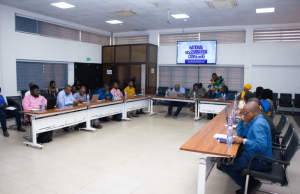By: Akosua Frema Frempong
The Katanga Alumni Association has paid glowing tribute to the memories of the late Dr. Paul Victor Obeng, affectionately called P. V. Obeng at his 10th memorial lecture held at KNUST, Kumasi.
The programme was organized by friends of PV Obeng and hosted by the Kwame Nkrumah University of Science and Technology.
The name Ingineer Sir Dr. Paul Victor Obeng resonates as a beacon of excellence and leadership within the hallowed halls of Katanga, a bastion of academic prowess and camaraderie at the KNUST.
A distinguished alumnus, P.V Obeng was more than just a graduate; he was the embodiment of the Katanga spirit.
Hailing from a lineage of exceptional individuals, P.V. Obeng ascended to leadership positions within the Hall, serving as both JCR and SRC President. His tenure was marked by an unwavering commitment to academic excellence and a dynamic approach to student leadership. It was during this period that the seeds of his transformative vision for the university and its students were sown.
P.V.’s influence extended far beyond the confines of Katanga. His appointment as Chairman of the KNUST University Council ushered in a golden era of progress and reform. Under his stewardship, the council approved the continuation of the SRC hostel project, a landmark decision that empowered students and demonstrated a commitment to their welfare.
Additionally, he championed the cause of continuing students, reversing the discriminatory policy that barred them from residing in traditional halls. His advocacy for a downward review of the 5% fees increment in 2011 further solidified his reputation as a champion of students’ rights.
Those were heady days, a time when student leadership was revered and university management was responsive to the needs of its constituents. P.V. Obeng fostered an environment of respect and decorous discourse, creating a platform for students to voice their concerns and aspirations. This stands in stark contrast to the current climate, where students are often met with indifference, if not outright hostility.
The erosion of student rights under the guise of academic freedom is a grave concern. The university has become a shadow of its former self, with an atmosphere that stifles creativity and critical thinking. It is a far cry from the institution that produced leaders like P.V. Obeng.
A staunch defender of Katanga, Obeng was deeply connected to the Hall’s ethos. Having earned a First Class degree in Mechanical Engineering, he was a living testament to the academic rigors and transformative power of the Katanga experience. In years past, the hall produced a disproportionate number of top academic achievers, a trend that was a direct result of the unique environment it fostered.
The recent push to amalgamate single-sex halls, including Katanga, is a misguided attempt to address gender parity. While increasing female enrolment is a laudable goal, it should not come at the expense of proven educational models. The data on the performance of single-sex versus co-educational schools is clear: single-sex environments often yield superior academic outcomes, particularly in STEM subjects.

The demise of P.V. Obeng marked the beginning of a concerted effort to undermine the legacy of Katanga. Yet, like the Intertropical Convergence Zone (ITCZ), the forces seeking to diminish the hall’s influence will eventually retreat. The Katanga spirit is resilient and enduring, and it will prevail.
As we commemorate the 10th anniversary of P.V. Oberg’s passing, we are reminded of his unwavering commitment to excellence, fairness, and the pursuit of a better future for Ghana. His legacy serves as an inspiration to current and future generations of Katangees. It is our duty to honor his memory by working tirelessly to restore Katanga to its former glory and to build a Ghana that embodies the values he cherished.















